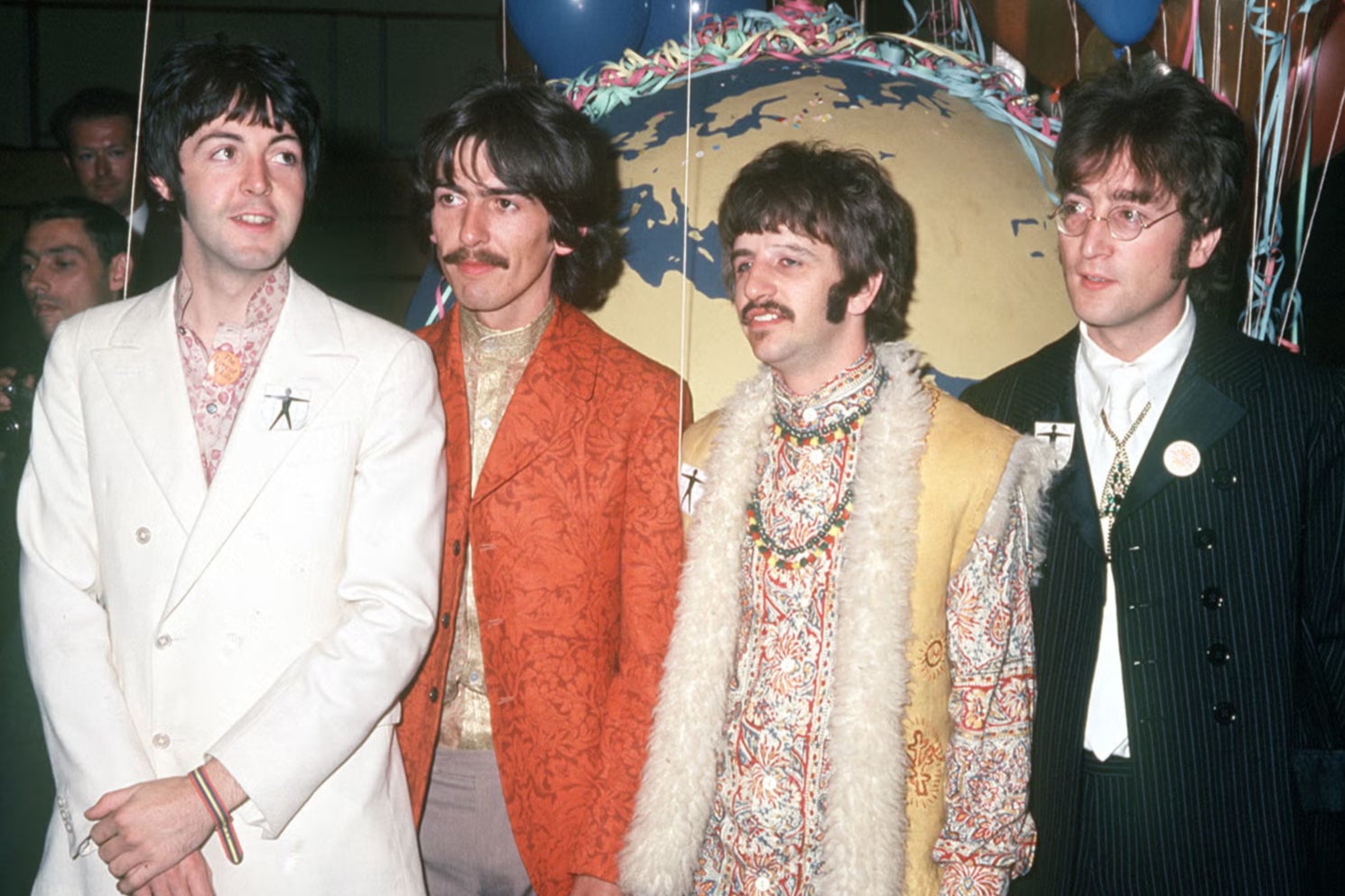Is there any ‘lost’ classic rock still worth hearing?
Next week, the original version of Michael Lindsey-Hogg’s behind-the-scenes Beatles film ‘Let It Be’ is released, while an app is turning John Lennon’s music into psychedelic mixes. Mark Beaumont wonders if there’s a limit to the resurfaced dregs and curios of great bands

Good news for fans of unnecessary, sanitised recaps – next week, Disney Plus release the original Michael Lindsey-Hogg version of the Let It Be film. This legendary fly-on-the-wall movie filmed in 1969, following The Beatles making what would eventually become their final album, has been unavailable for over 50 years and is undoubtedly a precious historical rock artefact. But coming so hard on the heels of Peter Jackson’s epic eight-hour Get Back series that trawled every frame of interest out of the raw footage, fractious warts and all, it’s inevitably going to feel like the best bits montage of a celeb reality show with all the juicy stuff taken out by an overprotective PR.
In other Beatles news, having rummaged one final song from the attic with last year’s wonderful “Now and Then”, the John Lennon estate has partnered with a “consciousness-expanding” phone app to release immersive psychedelic “meditation mixes” of his 1973 album Mind Games. And rumour abounds that Paul McCartney’s Archive Collection series, collecting virtually every scrap of studio material from his most celebrated records, may soon be venturing into late-Seventies Wings albums that nobody was even all that bothered about at the time. Meanwhile, Pink Floyd are releasing a boxset of their 1977 album Animals with no additional material – but now mixed in Dolby Atmos! The clamour, if no longer the tape hiss, is deafening.
Or is that the sound of classic rock’s barrel, having been scraped clean through the bottom, being artfully repainted and repurposed as artisan garden furniture for one last desperate flogging off? It certainly seems as though we’ve reached the point where there’s nothing of note left in the tank of rock history. Where every vault has been ransacked, every tomb desecrated, every idol drained dry.
Pretty much every album up until at least the end of the Eighties has now had enough anniversary reissues, super deluxe boxsets and inadvisable dance remixes over the decades that every demo, comedy jazz take and drug-addled studio lark worth hearing has been heard. Even Bob Dylan’s near-mythical and much-bootlegged Basement Tapes received a complete 138-track release in 2014, arguably the last great lost cache. Doesn’t it diminish the work, past this point, to dredge up every bum note Mick Ronson played, instead of enjoying the great ones he was happy with? Rather than continue to expose the nose-picking, chord-fluffing realities behind the rock’n’roll masterpieces – akin to scraping away the Mona Lisa to see the crude cock-and-balls Da Vinci painted over – should we not now let the classics rest in pristine peace?
Capitalism says no. As we speak, rock and pop’s biggest names are cutting multimillion-dollar deals over ownership of their music so that future generations of plunderers can find new ways to milk it. As more and more Golden Era acts slip into antiquity over time, we’ll no doubt see more widespread deployment of The Beatles’ exhaustive Anthology format, allowing us a ringside seat for every Charlie Watts drum take or David Bowie vocal that was ever interrupted by explosive flatulence. But it all poses the question: is there any lost classic rock or pop music still worth hearing?

One obvious example stands out in garish purple. Archivers have barely scratched the surface of the reported 8,000 unheard songs for which Prince built an actual underground vault beneath his Paisley Park complex before he died in 2016. Due to legal battles over its ownership (Prince, ever the prankster, left no will) only one entirely new album – 2021’s promising Welcome 2 America – has so far been compiled from the trove, which could conceivably keep Prince fans partying right up to 2999. According to a 60 Minutes investigation in 2021, the catalogue is now being sifted through in a climate-controlled LA storage facility called Iron Mountain, making the story sound even more like something Zack Snyder should be directing for the Marvel Cinematic Universe.
There are several tales of significant recordings that are genuinely lost. According to legend, during tense and exhausting sessions for the Jimi Hendrix Experience’s Axis: Bold as Love in 1967, Hendrix managed to leave the master tapes for side one in a London black cab shortly before it was due to be delivered. Though hastily remixed from other versions, the allegedly superior original is a slice of rock immortality probably tucked between umbrellas in a Paddington lost property lock-up to this day. Green Day, meanwhile, saw the master tapes of the follow-up album to 2000’s Warning – called Cigarettes and Valentines – stolen towards the end of recording. They stubbed out the entire project and made American Idiot instead, but someone, somewhere, is sitting on a pop-punk goldmine.
Should we not now let the classics rest in pristine peace? Capitalism says no
Other choice shelved or archived records are crying out to be heard. Solo demo tapes of another proposed Hendrix album – a sprawling 16-song fantasy suite entitled Black Gold, intended to soundtrack an animated feature about a cartoon Hendrix on the road – were given to drummer Mitch Mitchell in 1970 for him to work out his parts. Hendrix died before recording, though, and Mitchell mislaid the tapes for decades – they were believed stolen by the vandals who looted Jimi’s apartment shortly after his death, until they resurfaced in Mitchell’s home in 1992. The nine as-yet-unreleased tracks from the tapes remain the holy grail for Hendrix lovers.
And who wouldn’t want to lend an ear to the full E Street electric version of Springsteen’s Nebraska? Or “Carnival of Light”, the 14-minute avant-garde piece composed for a hippie rave in 1967 that remains the littlest-heard track ever recorded by – oh yes – The Beatles? But even these are mere dregs and curios, their appeal more in their novelty than their quality. Further signs that rock has been wrung out and that – barring their inevitable avatar show and multi-member, even-Ringo-gets-one biopics – music’s great but exhausted cash-cow catalogues should surely be put out to pasture.
Join our commenting forum
Join thought-provoking conversations, follow other Independent readers and see their replies
Comments


Bookmark popover
Removed from bookmarks